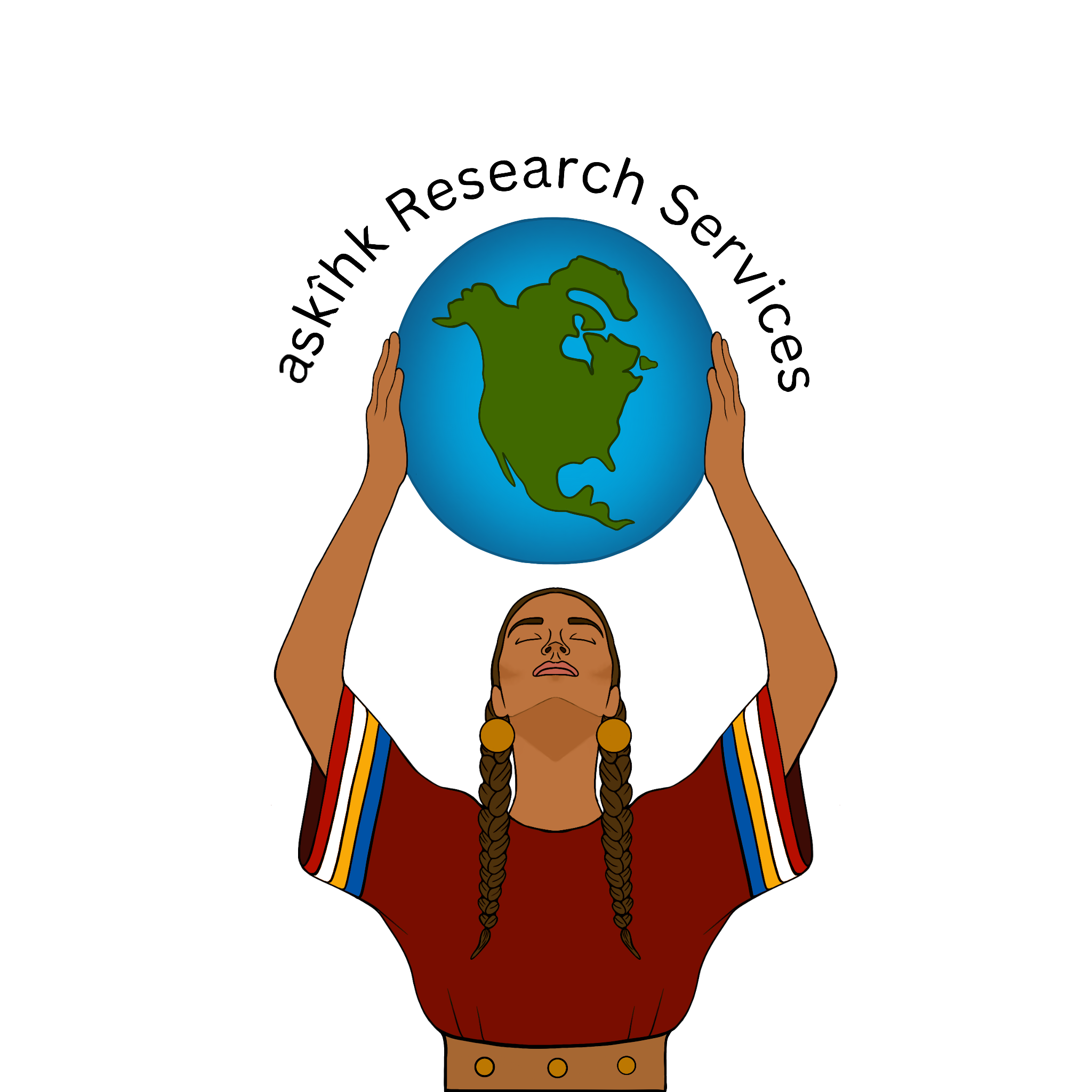Our Story
Askîhk Research Services was born from the urgent need to conduct culturally safe and accurate investigations into the whereabouts of forcibly disappeared children associated with former Indian Residential Schools.
From the beginning, we knew that the name of our company had to be more than just a title—it had to be a statement. A reflection of the sacred responsibility we carry and the trust placed in us by families and communities.
Many names were considered, yet none fully captured the depth of our mission. Our CEO, Micaela Champagne, turned to her kukom, Monique—a Residential School Survivor—for guidance. With careful thought and deep spiritual reflection, Monique gifted us the name askîhk, a Cree word meaning “from the Earth.”
To be from the Earth is to be of our Mother—Mother Earth—embraced and protected by her. This meaning resonates deeply with our work. We use technology to search the Earth and locate the resting places of our Children, who were taken. The Earth holds them gently, keeping them safe until they can be returned home.
In some Cree dialects, askîhk also translates to “bucket,”—a fitting symbol for a team of archaeologists. A vessel for uncovering truths, gathering knowledge, and carrying the weight of our collective past with care.
And so, askîhk Research Services was born—from the Earth, with purpose, and in honour of our Children.
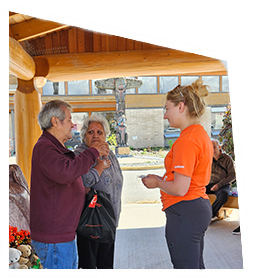
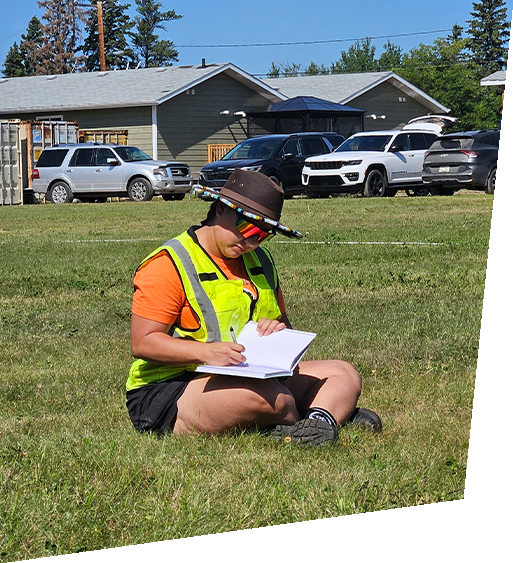
Askihk research services formed out of a clear need for a company focused on finding the children. A company separate from institutions and large firms who may not be able to put the time, consideration, privacy, and needs of the communities above all else. This foundation, the reason for the formation, guides our operations.
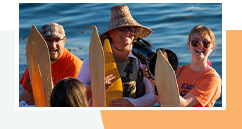
Our Work
We are archaeologists with expertise in fieldwork and the use of remote sensing technologies in the search for unmarked graves at residential schools and associated sites. We operate novel technologies, such as S4, to assist in these searches. Not only does our process include planning and field work, we also assist you with media strategies and memorialization as they become relevant to your project.
We hope to provide the tangible proof to support the long-known truths about the tragedies of Indian Residential Schools.
At askîhk, we view you as partners rather than clients. We want this work to be done through collaboration and partnership and for you, the community, to be involved in every step of the project. We seek to work with your community from start to finish, meeting you where you’re at to plan the project, and working with you until the search is complete. This means each project looks different for us, and that’s where we excel.

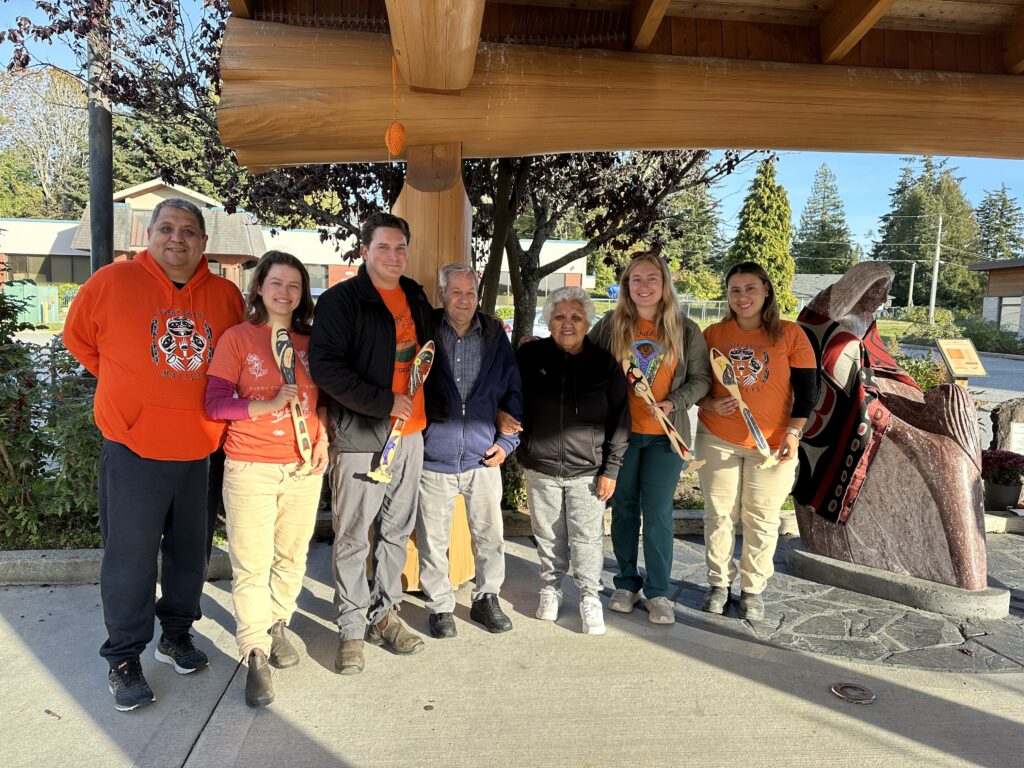
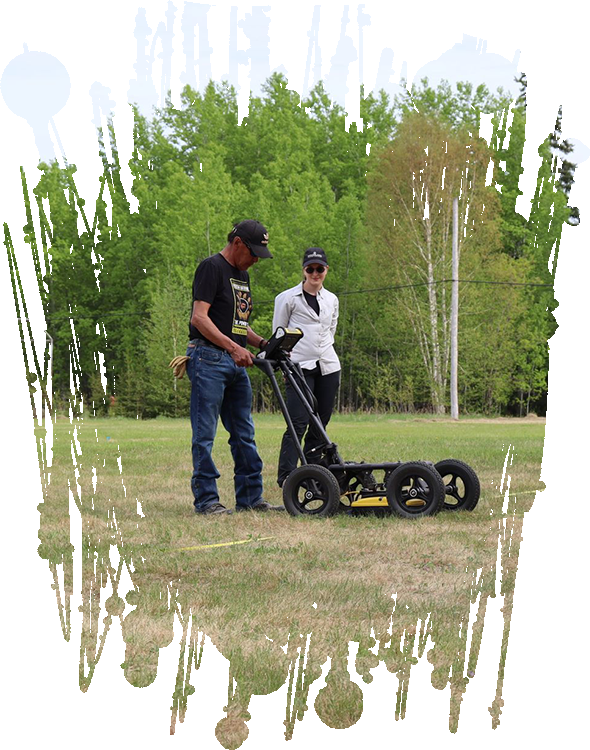
Where Do We Work
While we’re a new company and truly just getting started, we have worked in four provinces across Canada! We’ve had the opportunity to work with communities in British Columbia, Alberta, Saskatchewan, and Quebec.
Our Technical Expertise
Not only are we archaeologists with expertise in fieldwork and remote sensing technologies, we operate novel technologies to assist in these searches. Our process includes planning and fieldwork, as well as assisting you with media strategies and memorialization projects as they become relevant to your project.
At askîhk, we view you as partners rather than clients. We want this work to be done through collaboration and partnership with you and for you. Our goal is to have you, the community, to be involved in every step of the project. This means each project looks different, and that’s where we excel.
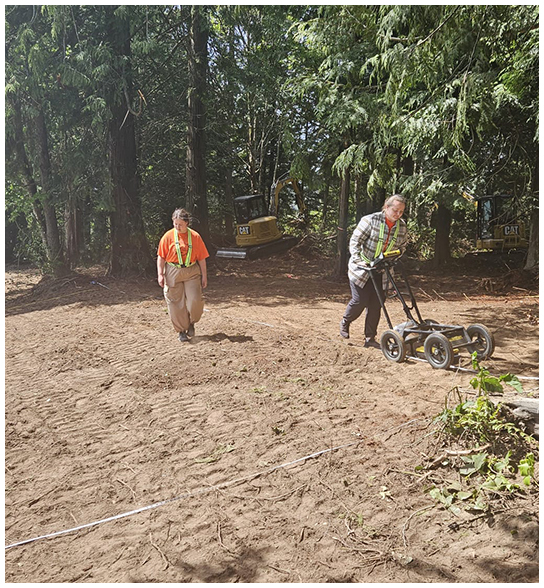

Team

Community Involvement

Indigenous and Women Owned

Where We Work
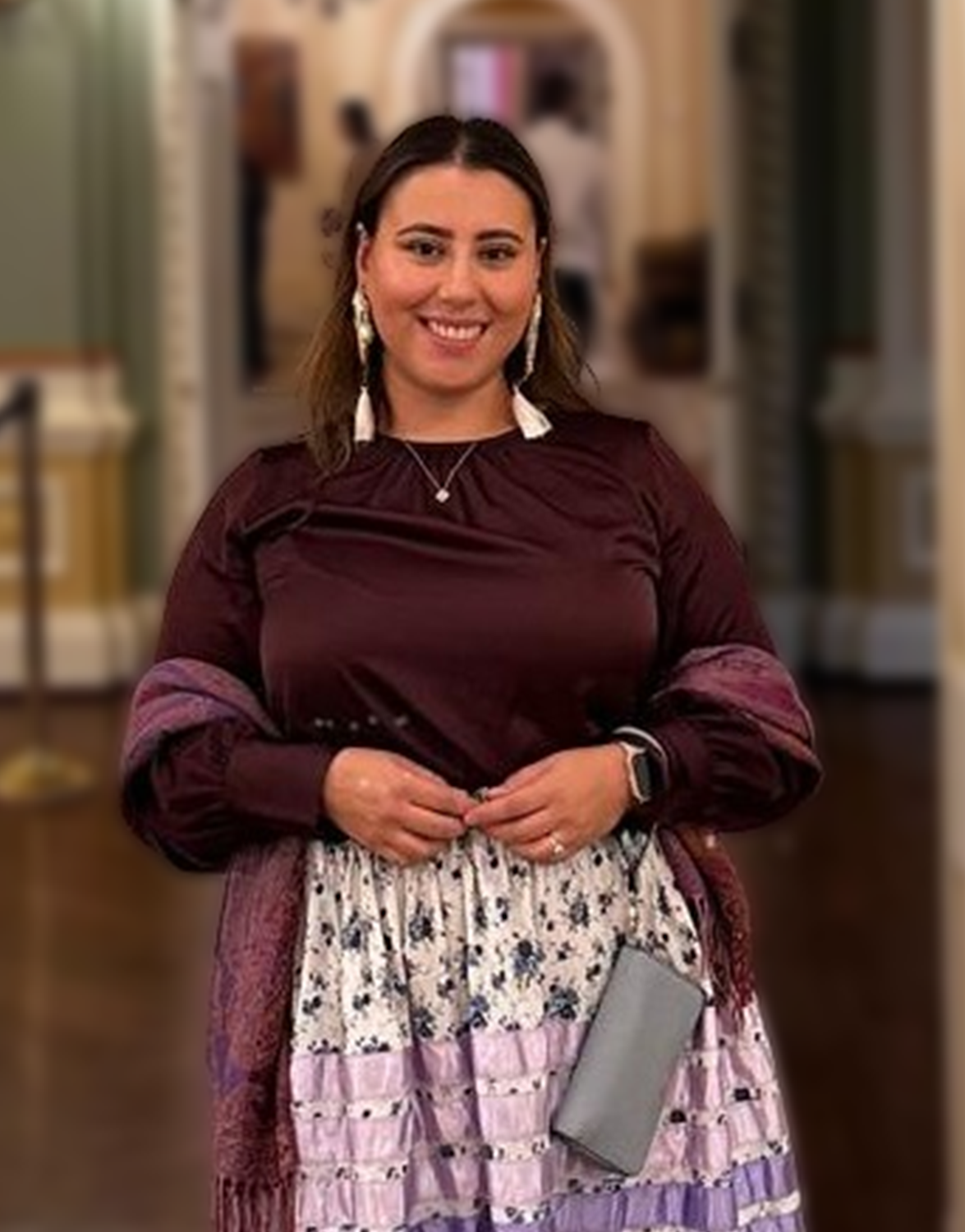
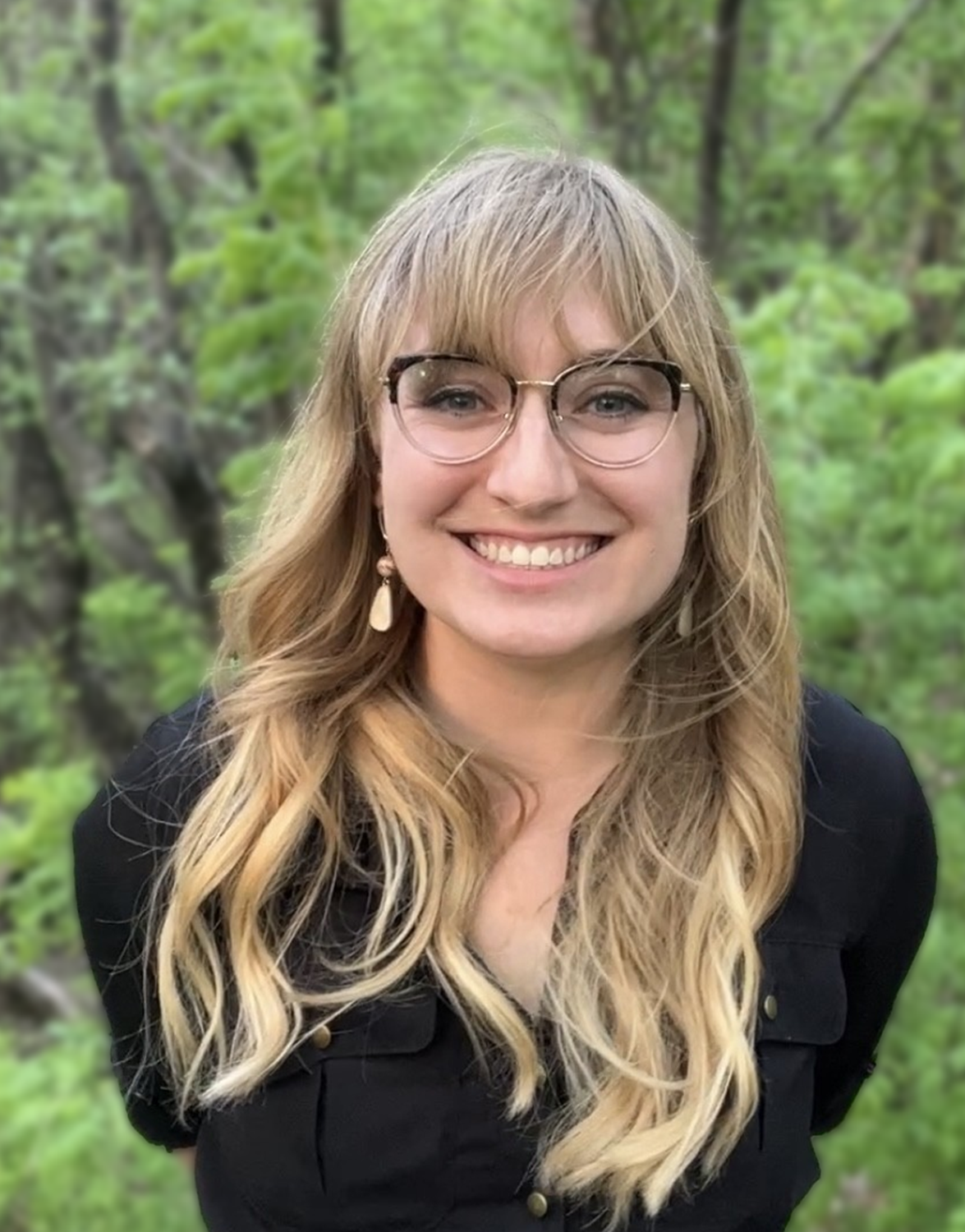
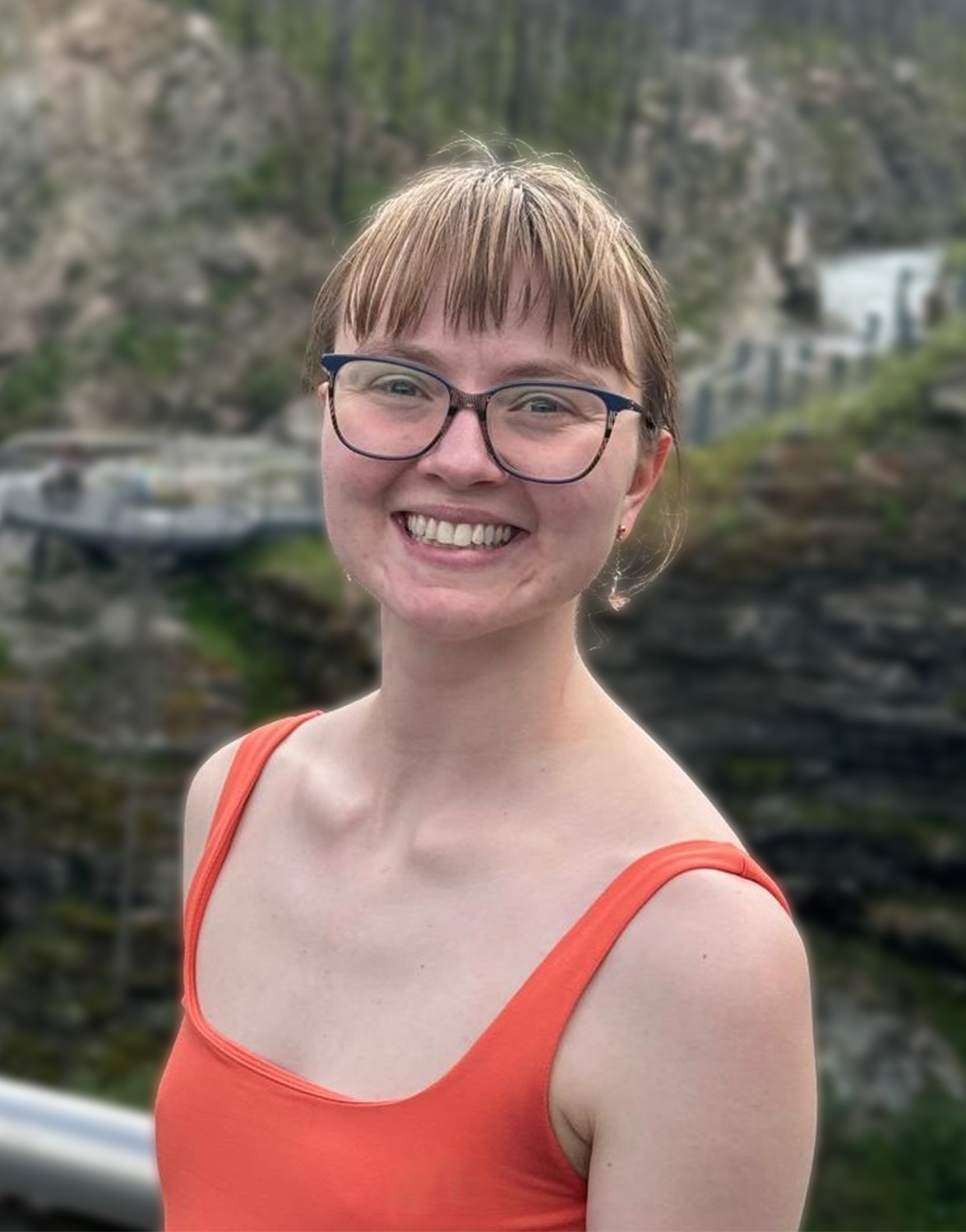
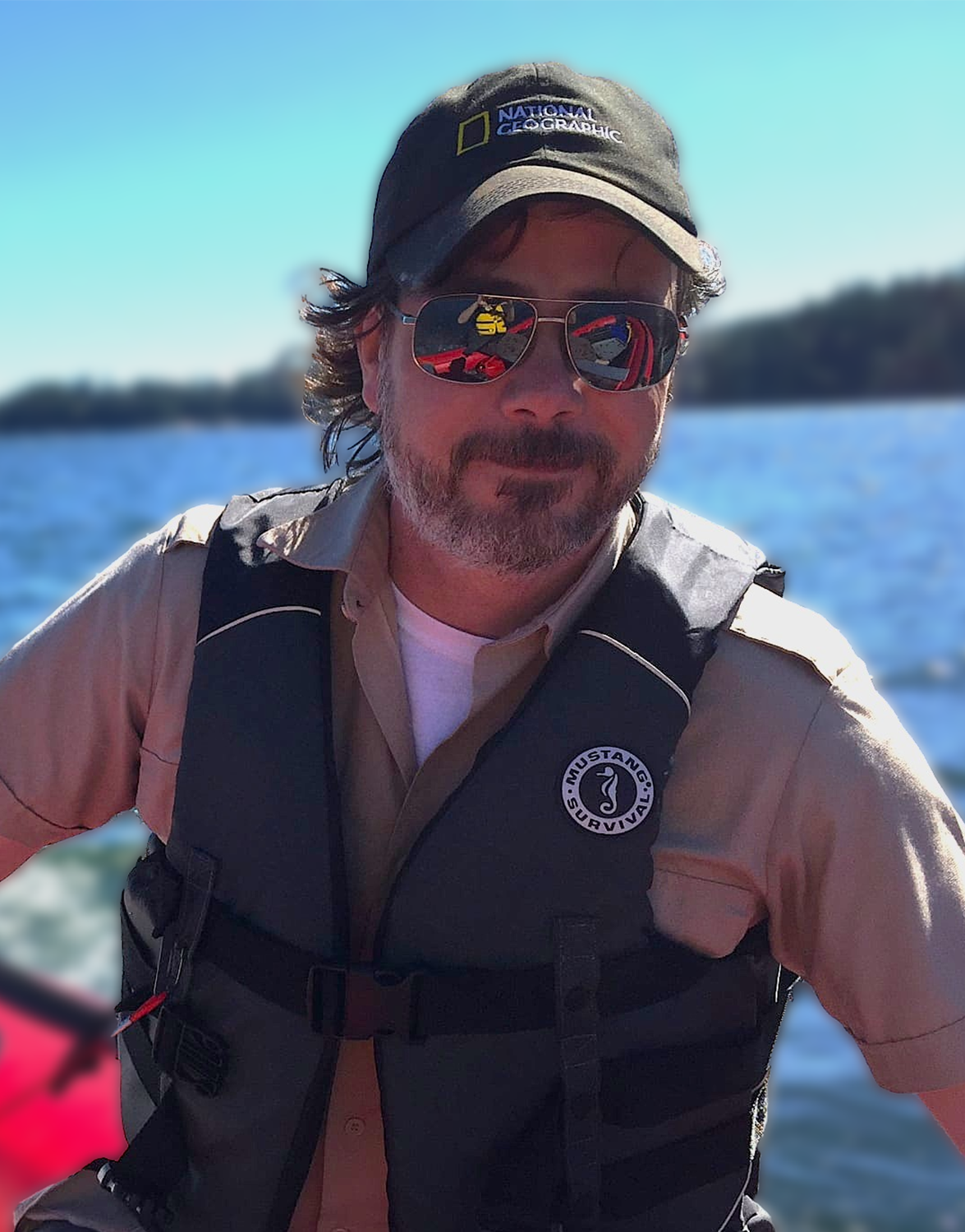
Micaela Champagne is a Métis and Cree woman and Canoe Lake Cree Nation member born and raised in Saskatoon. She has a background in Archaeology, Anthropology, and Cellular Biology; Micaela has completed her Bachelor of Science in Archaeology from the University of Saskatchewan and is pursuing her Master’s in archaeology. As the former student director of the Science Ambassador Program at the University of Saskatchewan, she has experience working in remote communities and bridging science with western and Indigenous ways of knowing. Her skills and high level of expertise are carefully crafted from years of experience and are constantly evolving as newer and better practices emerge in the realm of remote sensing technology. Her integration of Cree beliefs and practices in this work as the CEO allows for strong leadership in protocols and ceremonies in a way that honours both those who made it home and those who never did. When not in the field, Micaela fills her time reading fantasy books and planning her next nerdy archaeology adventure.
Katie Willie was born and raised in Saskatoon and holds both a Bachelor’s and a Master’s degree in Archaeology from the University of Saskatchewan. Coming from a settler family of farmers shaped Katie’s interest in the land, the plants, animals and people on it, combined with a love of history from a young age, archaeology came to be a perfect fit. Passionate about sharing knowledge about the land we’re on and its deep history in ways that are approachable and consumable for everyone, Katie worked in tourism and archaeology for many years before beginning remote sensing work with the university. A founding member of askîhk Research Services, she is the operations main – schedules, logistics, planning, writing, and data analysis are her main areas. She’s our resident safety gal, making sure crews are equipped with the gear and knowledge to handle themselves in any outdoor environment. Fun interests and side quests? Katie is a member of Saskatoon Search and Rescue and has been involved with artistic swimming (a.k.a. synchronized swimming) for over 15 years!
Angela Burant grew up in Saskatoon, Saskatchewan and has always had a keen interest in learning about history and other cultures. This led to her completion of a Bachelor’s degree majoring in archaeology at the University of Saskatchewan, and she recently completed her Master’s in Archaeology at the U of S. Angela has a background in anthropology and Northwest Coast archaeology through her work with the shíshálh Archaeological Research Project (sARP) in British Columbia, which was a steppingstone in her career that led her to begin remote sensing work.
One of the founding members of askîhk Research Services, Angela is the people lead, meaning she handles people management, conflict resolution, hiring, and crew training. She ensures that all of our team members are ready to work and aid in the search process with you and your community. In her spare time, Angela enjoys going to Pilates, and she has recently taken up embroidery.
Terence Clark is an Associate Professor at the University of Saskatchewan in the Department of Anthropology. He has spent 30 years working in collaboration with Indigenous communities conducting archaeological and anthropological research across western Canada. Since 2018, he has focused his expertise and resources in the search for unmarked graves at former Indian Residential School sites. He is a founding member of the Canadian Archaeological Association Working Group on Unmarked Graves. He has shared his experiences across Canada in many community-focused workshops and town halls. He has won the Governor General’s Innovation Award and the Queen Elizabeth II Platinum Jubilee Medal for his work on Reconciliation.
as told by @j.wapiskisiw
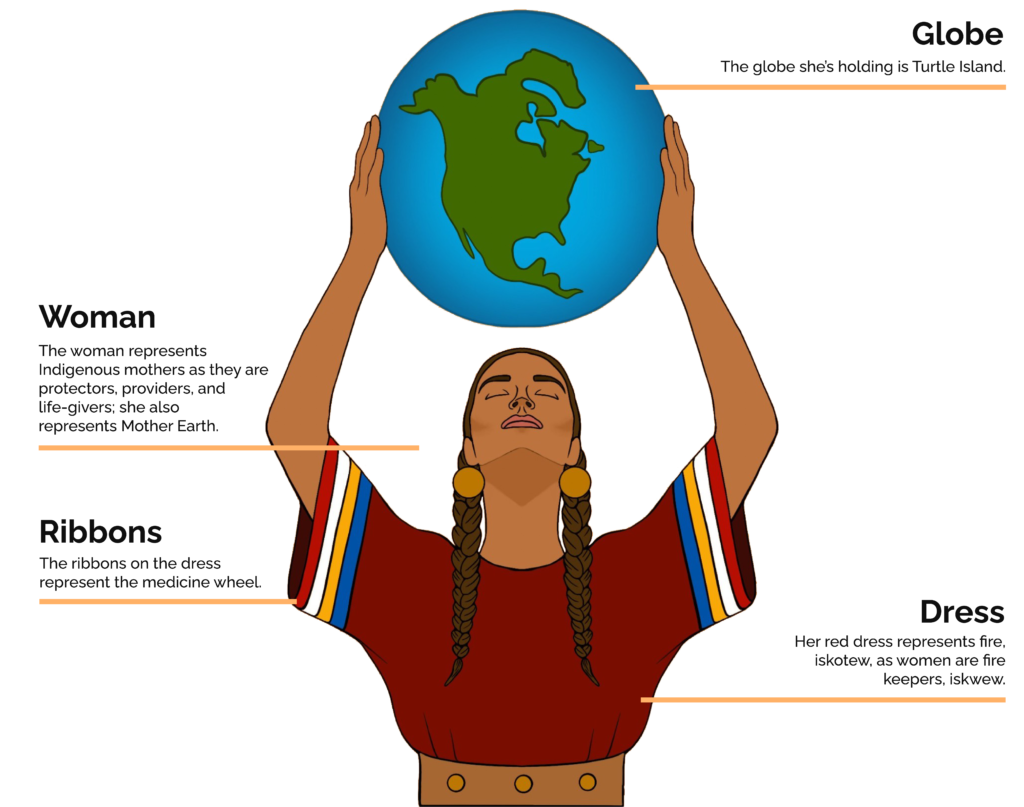
About Artist
J. Whitecalf is an Indigenous artist from James Smith Cree nation. His art style is indigenous, art and graffiti mixed with Cree language and native slang. Josh has been a lifetime artist and has gotten back into art since starting his sober journey. Growing up, Josh did not see any Indigenous role models. His goal is to inspire youth to live a healthy art filled life in his home community of James Smith and in the city of Saskatoon. Josh is inspired to continue to push forward on his journey and his art for his son and the next generations.

